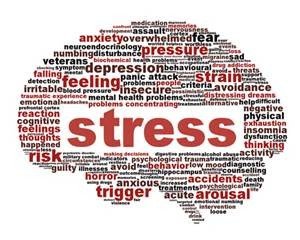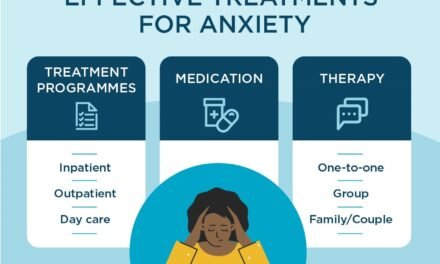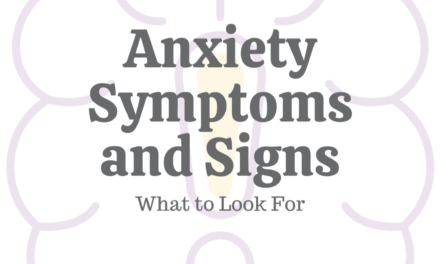Introduction:
Stress relief resources provide essential tools for managing anxiety, promoting calm, and improving overall well-being.
Stress is an inevitable part of life, and while a little stress can be motivating, chronic stress can have serious consequences for mental and physical health. Whether triggered by work, relationships, or daily life challenges, prolonged stress can lead to issues like anxiety, depression, sleep disorders, and even heart disease.
However, there are numerous resources available to help individuals manage and relieve stress effectively.
This article explores a variety of stress relief techniques, tools, and resources that can help you maintain balance and well-being.
Stress Relief Resources
1. Mindfulness and Meditation Apps:
Mindfulness and meditation have been scientifically proven to reduce stress by promoting relaxation and fostering emotional balance. Numerous apps make these practices accessible to beginners and experts alike.
Headspace:
Offers guided meditations, mindfulness exercises, and sleep programs. It’s ideal for beginners looking for structured guidance.
Calm:
Provides a range of resources for relaxation, including guided meditations, breathing exercises, and relaxing soundscapes.
Insight Timer:
A large library of free meditations from various teachers around the world. It also includes meditation timers and progress tracking.These apps encourage daily practice and mindfulness, which can lead to better stress management over time.

2. Exercise and Physical Activity :
regular physical activity is one of the most effective stress relievers. Exercise helps your body produce endorphins, the brain’s natural mood lifters. Whether it’s intense cardio or a gentle yoga session, moving your body can dramatically reduce stress levels.
Yoga with Adriene:
This free YouTube channel offers a wide range of yoga videos catering to all skill levels. Many of the routines focus on relieving stress and tension.
Fitness Apps:
Apps like Nike Training Club and FitOn offer free workouts that range from quick 10-minute sessions to longer, more intense routines. Incorporating physical activity into your routine can provide an immediate mood boost and long-term stress relief.
3. Therapy and Counseling Services:
For those dealing with more intense or chronic stress, professional counselling can be a powerful tool. Many platforms now offer therapy remotely, making it accessible to more people.
BetterHelp:
Offers online counselling services with licensed therapists via messaging, live chat, phone, and video sessions.
Talkspace:
Provides users with the ability to communicate with a therapist via text, audio, or video. It’s a convenient option for those with busy schedules.Additionally, many communities offer free or low-cost therapy through local mental health organisations, and employee assistance programs (EAP) often provide counselling as part of workplace benefits.
4. Journaling and Expressive Writing:
Writing about your thoughts and emotions is a simple yet effective way to relieve stress. Journaling helps organise your thoughts, releases built-up tension, and offers a non-judgmental space to reflect.
Day One Journal:
A popular digital journaling app that allows you to write entries, add photos, and track your mood over time.
Penzu:
An online journaling platform that allows for private, customizable entries. Writing about stressful events can help process emotions and gain perspective.Studies show that expressive writing for just 15-20 minutes a few times a week can reduce stress and improve mental well-being.
5. Breathing Techniques and Relaxation:
Tools deep breathing exercises can lower cortisol levels and activate the body’s relaxation response. Many apps and tools can guide you through these techniques
Breathwork:
Provides guided breathing exercises designed to reduce anxiety, improve focus, and promote relaxation.
Breathe 2Relax:
This free app is developed by the Department of Defense and offers simple breathing exercises specifically designed to reduce stress.Additionally, physical tools like stress balls, fidget toys, or massage devices can help alleviate stress in the moment by focusing on tactile sensations.
6. Nature and Green Spaces:
spending time outdoors and in nature has been shown to lower stress levels and improve mental health. Green spaces provide a calming environment where you can disconnect from the pressures of daily life. Even a short walk in a park or garden can have significant benefits.
AllTrails:
A useful app for finding hiking, walking, and biking trails in your area. Whether you prefer short nature walks or longer hikes, spending time in green spaces can rejuvenate your mind and body.
7. Sleep Hygiene and Relaxation quality:
sleep is essential for managing stress, yet stress itself can disrupt sleep. Developing good sleep hygiene can help break this cycle and improve overall well-being.
Sleep Cycle:
This app monitors your sleep patterns and wakes you up at the optimal time, making mornings less stressful and helping you feel more rested.
Combines sounds, voiceovers, and music to help users fall asleep faster and stay asleep. Sleep is crucial for maintaining resilience against stress, and these tools can improve sleep quality.
8. Community and Support Groups:
Sometimes the best stress relief comes from connecting with others who understand what you’re going through. Support groups, both online and in person, offer emotional support and practical advice for managing stress.
Meetup:
A platform for finding local groups of people with similar interests. Whether it’s a meditation group, book club, or exercise class, finding community can help alleviate feelings of isolation.
Reddit Communities:
Subreddits like r/stress or r/anxiety offer support, advice, and shared experiences from individuals facing similar challenges.
9. Art and Creative Outlets:
Creativity can be a powerful way to channel stress into something productive and positive. Engaging in activities like drawing, painting, knitting, or playing music helps focus the mind and allows for emotional expression.
Skillshare:
An online learning community offering classes on a variety of creative subjects, from photography to illustration.
Colouring Apps:
Apps like Pigment or offer digital colouring books designed to reduce stress by allowing users to focus on calming, repetitive tasks.
The Benefits of Stress Relief:
Effectively managing stress can lead to a host of physical, mental, and emotional benefits. Here are some key advantages of incorporating stress relief techniques into your life:
1. Improved Mental Health reduced:
Anxiety and Depression:
By engaging in mindfulness, exercise, or therapy, individuals can lower levels of anxiety and depression, which are often exacerbated by stress.
Enhanced Emotional Stability:
Stress relief techniques, such as journaling or meditation, help improve emotional regulation and promote a more balanced mental state.
Increased Resilience:
Effective stress management helps build resilience, making it easier to cope with challenges without becoming overwhelmed.
2. Better Physical Health lower Blood Pressure:
Chronic stress can lead to high blood pressure, which increases the risk of heart disease. Relaxation techniques and physical activity can help lower blood pressure.
Improved Sleep:
Managing stress can lead to better sleep quality and duration. This, in turn, improves mood, cognitive function, and overall health.
Stronger Immune System:
Chronic stress weakens the immune system, making the body more susceptible to illness. Reducing stress can help strengthen immunity and improve overall health.
3. Enhanced Cognitive Function:
Better Focus and Concentration Stress can impair cognitive function, leading to problems with focus and memory. Mindfulness, meditation, and adequate sleep help improve concentration and mental clarity.
Improved Decision-Making:
When stress is under control, it’s easier to think clearly and make rational decisions, as the brain isn’t in a constant fight-or-flight state.
Boosted Creativity:
Reducing stress allows for greater mental flexibility, which can enhance creativity and problem-solving abilities.
4. Stronger Relationships improved Communication:
Stress relief techniques like mindfulness help individuals become more present, improving communication and reducing misunderstandings in relationships.
Better Emotional Availability:
When stress is managed, people tend to be more emotionally available and empathetic, leading to stronger connections with others.
Reduced Conflict:
By managing your stress levels, you are less likely to react impulsively or aggressively in difficult situations, reducing conflicts in personal and professional relationships.
5. Increased Productivity higher Energy Levels:
Regular physical activity, good sleep, and reduced mental strain can lead to increased energy, which can enhance both personal and professional productivity.
Enhanced Time Management:
With a clearer mind, you’re better able to prioritise tasks, manage time effectively, and reduce procrastination.
Greater Motivation:
When stress is under control, you are more likely to feel motivated and engaged in your daily tasks, whether at work or home.
6. Personal Growth and Well-being greater Self-Awareness:
Mindfulness, journaling, and therapy foster self-reflection, helping you better understand your emotions and reactions, leading to personal growth.
Increased Life Satisfaction:
Managing stress effectively can enhance your overall well-being, contributing to greater life satisfaction and happiness.
Enhanced Coping Skills:
By using stress management tools, you develop healthier ways to cope with challenges, leading to a more balanced and fulfilling life.In summary, stress relief offers a wide range of benefits that enhance both mental and physical well-being. From improved health and productivity to stronger relationships and increased life satisfaction, managing stress effectively can dramatically improve your quality of life.
Conclusion:
Managing stress is essential for maintaining overall well-being in today’s fast-paced world. By utilizing a variety of stress relief resources—such as mindfulness, exercise, therapy, creative outlets, and support networks—you can protect both your mental and physical health. The benefits of stress relief go far beyond temporary relaxation; they improve emotional resilience, cognitive function, physical health, and relationships. Incorporating these strategies into your daily routine fosters a more balanced, productive, and fulfilling life. Taking proactive steps to reduce stress isn’t just about feeling better in the moment, but about enhancing your long-term well-being.
you must watch 👁️👁️ this article 👇👇👇
Depression Anxiety Stress Scale 42: Measuring the Emotional Spectrum





